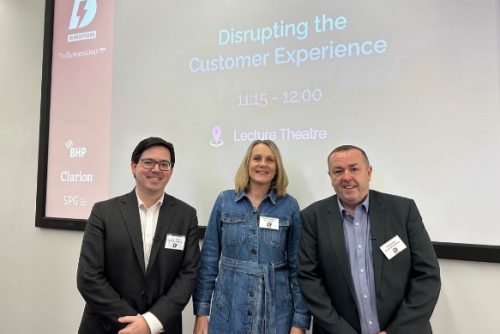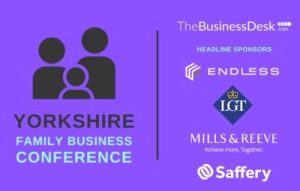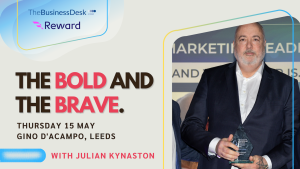Disruptors: Disrupting the customer experience

How can disruptive technologies enable companies to challenge traditional norms, create innovative business models, and capture new opportunities?
What strategies can firms use to leverage data-driven insights, personalised experiences, and seamless digital interfaces to deliver value to customers and stay ahead in today’s dynamic marketplace?
Some of these questions were tackled by two speakers at TheBusinessDesk.com’s Disruptors conference, which was hosted by Nexus in Leeds and sponsored by BHP, Clarion and SPG.
Speaking during the “Disrupting the customer experience” part of the conference were Nicola Frampton of Frasers Group – which includes brands such as Sports Direct, House of Fraser and Flannels – and Mike Stewart of Arvato CRM Solutions.
Frampton said her own business had managed to reinvent itself through digital innovation, but conceded that initially it had not exploited the latest technological opportunities in retail.
“We were slow to get on the bus and the last five years have been a hard slog to catch up,” she said.
“Back in the day our brand suffered because we didn’t invest in this, so it’s important to keep on top of innovation.”
She said the information the business can now glean from digital insights into its customers means it can be a lot more agile and responsive than in the past.
“We can now test so many things on our e-commerce channels,” she said. “We have more insights to inform our product placement. The way in which we work out our brand proposition is really forensic.”
She said the group’s storage centre at Shirebrook had been out-of-date, with suppliers unhappy about lost or damaged stock. In response to these problems, the business invested over £200m in automating the facility.
“We’ve now got electronic stock management and digital racking,” Frampton said. “We know where all our items are, we’ve doubled our storage space and we’ve all but eliminated heavy manual work.
“Thanks to this, errors and damage have decreased and we can get stock out to customers much faster.”
Frampton said the group had also updated its bricks and mortar stores introducing selfie booths and digital measuring capabilities for clothes shoppers.
Stewart said his own company, which offers services in customer experience, digital transformation and back office processing, has been firmly on the automation route since 2011.
Examples of its work have included automating month end reports for television production company Fremantle as well as providing intelligent decision making for central government and exploring a language translation solution for a book publisher.
Stewart highlighted the potential automation has to accelerate administrative processes and free up staff, noting: “Our automation for Fremantle meant staff not having to work till ridiculous hours in the morning.
“And we’re working with a couple of companies on their refunds operations, because if you can refund people faster they’re more likely to do business with you again.”
He said this need to speed up such processes ties in with today’s consumer expectations of a rapid delivery service.
He said younger people in particular now expect to be able to quickly order goods via their phones, adding: “How often do you see kids walking around without a phone in their hand? My two daughters are always having goods delivered.”









